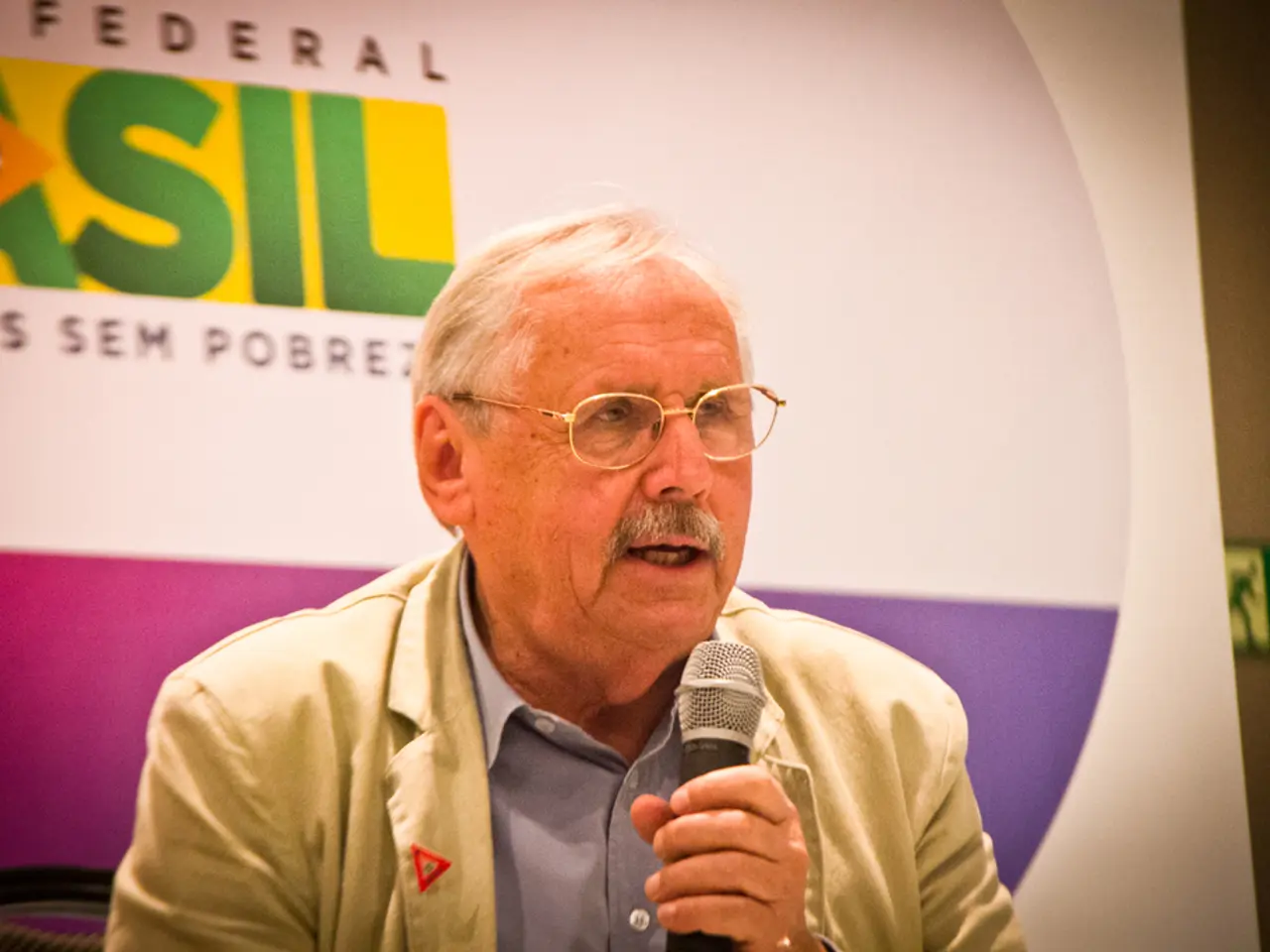Denmark News Roundup for Wednesday: Coverage of current events in Denmark today
Headline: Interpol Lifts Red Notice for Anti-Whaling Activist Paul Watson as Denmark Faces Torrential Downpours
In a significant turn of events, Interpol has permanently dismissed the Red Notice against anti-whaling activist Paul Watson, who was arrested and detained in Greenland in July 2022 on a 2012 Japanese warrant. Watson was held by Danish authorities in Greenland for several months last year, but was eventually released in December after Denmark refused the extradition request over the 2010 clash with whalers.
Meanwhile, the Danish Meteorological Institute has been warning for several years that climate change is increasing torrential downpours in Denmark. Parts of southeastern Denmark have recorded a third more rain in one day than usually falls in the whole of July, leading to severe flooding in certain areas. The Danish Roads Directorate has warned that roads in several locations across the country remain under water due to the heavy rain. No flooding or major damage has been reported so far, but the situation is being closely monitored.
The Danish government's stance on immigration and refugee policy has been markedly tougher than many other European countries, including Germany. Denmark aims to drastically reduce new asylum arrivals through tightened asylum rules, family reunification restrictions, and measures discouraging settlement and irregular migration. The government emphasizes temporary asylum statuses, voluntary return incentives, and demands strong integration conditions such as language learning, labor market entry, and respect for democratic norms. Denmark also insists on asylum processing as close as possible to migrants' regions of origin to prevent dangerous journeys and human smuggling.
Denmark's approach has gained domestic support and inspired other countries like Sweden, Austria, and Hungary, although Denmark’s small size and unique EU opt-outs give it special advantages. The Danish Prime Minister Mette Frederiksen, leading the EU Council presidency in 2025, continues to prioritize tougher EU-wide migration rules, calling for lower migrant influx and stricter asylum and border controls. The Danish government also focuses on enhancing repatriation rules to make returns to countries of origin more effective.
In comparison, Germany historically has maintained a more open immigration and refugee policy, with a higher intake of asylum seekers, though it too has tightened some rules in recent years. Germany typically emphasizes asylum protection and integration efforts differently, often accommodating larger numbers of refugees and maintaining broader family reunification rights. However, exact details on Germany’s current stance were not provided in the search results, but it is generally reported that Germany remains more open relative to Denmark’s increasingly restrictive approach.
Elsewhere in Denmark, two Swedish men have been arrested and charged for firing at least 19 shots at an allotment house in Odense on February 9th, 2023. The shooting incident has caused concern among local residents and authorities are currently investigating the motive behind the attack.
The debate over immigration and refugee policy continues to be a contentious issue in Denmark, with Danish Immigration Minister Kaare Dybvad Bek criticizing former German Chancellor Angela Merkel for her approach to Syrian refugees. Dybvad Bek argues that Merkel's approach led to difficulties in getting refugees into jobs. Merkel opened Germany's borders to over a million migrants, including Syrian refugees, in 2015. New German Chancellor Friedrich Merz has praised Denmark's restrictive approach to migration.
References: [1] BBC News. (2021, June 16). Denmark's tough new asylum rules: What are they and why? [2] The Local. (2021, June 16). Denmark's new asylum laws: What's changing and how will it affect refugees? [3] The Guardian. (2021, June 17). Denmark's tough new asylum rules: 'We're a country of 5.8 million people, not 5.8 billion' [4] Politico. (2021, June 17). Denmark's tough asylum laws: A model for Europe? [5] The Local. (2021, June 17). Denmark's new asylum laws: What you need to know [6] Reuters. (2023, February 10). Two Swedish men arrested in Denmark over shooting of allotment house.
In light of the lifted Red Notice against anti-whaling activist Paul Watson, the focus of news shifts from politics to general-news and crime-and-justice, as two Swedish men are arrested in Denmark for a shooting incident. Simultaneously, the Danish government grapples with the challenges of managing immigration and refugee policy, with its approach differing significantly from Germany's more open stance. While the Danish government advocates for stricter asylum rules and family reunification restrictions, the debate over immigration continues to be contentious, with political discussions revolving around the effectiveness of Germany's integration efforts versus Denmark's more restrictive approach. The weather, however, has also become a source of concern in the country, with torrential downpours causing severe flooding and road disruptions, according to weather reports from the Danish Meteorological Institute.








